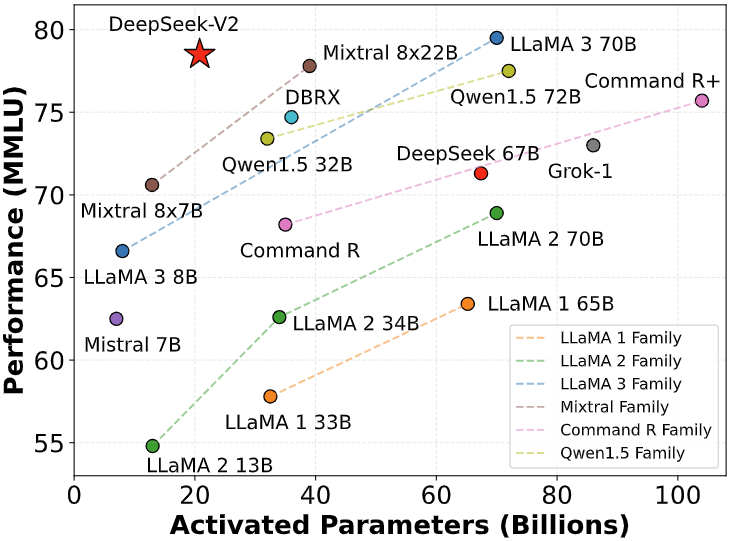
Richard Whittle gets financing from the ESRC, Research England and was the recipient of a CAPE Fellowship.

Stuart Mills does not work for, speak with, own shares in or get funding from any business or organisation that would gain from this post, and has actually divulged no pertinent associations beyond their academic visit.

Partners
University of Salford and University of Leeds offer financing as founding partners of The Conversation UK.
View all partners
Before January 27 2025, it's fair to say that Chinese tech company DeepSeek was flying under the radar. And after that it came significantly into view.
Suddenly, everyone was discussing it - not least the investors and executives at US tech firms like Nvidia, Microsoft and Google, which all saw their company values tumble thanks to the success of this AI start-up research study laboratory.
Founded by a successful Chinese hedge fund supervisor, the lab has taken a different approach to expert system. Among the significant distinctions is cost.
The advancement expenses for Open AI's ChatGPT-4 were stated to be in excess of US$ 100 million (₤ 81 million). DeepSeek's R1 design - which is utilized to generate material, fix reasoning issues and develop computer code - was supposedly made utilizing much fewer, less effective computer chips than the similarity GPT-4, resulting in expenses claimed (however unproven) to be as low as US$ 6 million.
This has both monetary and geopolitical effects. China is subject to US sanctions on importing the most innovative computer chips. But the truth that a Chinese startup has been able to construct such an innovative model raises questions about the effectiveness of these sanctions, and whether Chinese innovators can work around them.
The timing of DeepSeek's brand-new release on January 20, as Donald Trump was being sworn in as president, freechat.mytakeonit.org signified a challenge to US dominance in AI. Trump responded by explaining the minute as a "wake-up call".
From a monetary perspective, the most noticeable impact might be on consumers. Unlike rivals such as OpenAI, which just recently began charging US$ 200 each month for access to their premium designs, DeepSeek's comparable tools are presently totally free. They are also "open source", permitting anybody to poke around in the code and reconfigure things as they want.
Low costs of advancement and effective usage of hardware seem to have actually managed DeepSeek this cost advantage, and have currently forced some Chinese rivals to decrease their rates. Consumers must anticipate lower expenses from other AI services too.
Artificial investment
Longer term - which, in the AI industry, can still be incredibly quickly - the success of DeepSeek could have a big influence on AI investment.
This is due to the fact that up until now, nearly all of the big AI business - OpenAI, Meta, Google - have been having a hard time to commercialise their designs and be rewarding.
Until now, this was not necessarily a problem. Companies like Twitter and Uber went years without making earnings, prioritising a commanding market share (lots of users) rather.
And companies like OpenAI have been doing the same. In exchange for disgaeawiki.info constant investment from hedge funds and other organisations, they promise to construct much more powerful models.
These models, the business pitch probably goes, will massively boost performance and after that profitability for organizations, which will end up happy to spend for AI items. In the mean time, all the tech companies need to do is collect more data, purchase more powerful chips (and iuridictum.pecina.cz more of them), and establish their models for longer.
But this costs a lot of cash.
Nvidia's Blackwell chip - the world's most powerful AI chip to date - expenses around US$ 40,000 per system, and AI business frequently need tens of countless them. But already, AI business haven't actually struggled to draw in the needed investment, even if the amounts are big.
DeepSeek might change all this.
By showing that innovations with existing (and larsaluarna.se possibly less advanced) hardware can attain similar performance, it has offered a warning that tossing cash at AI is not guaranteed to pay off.
For instance, prior to January 20, it might have been presumed that the most sophisticated AI designs need massive information centres and other infrastructure. This implied the similarity Google, Microsoft and OpenAI would face limited competitors since of the high barriers (the vast expenditure) to enter this industry.
Money worries
But if those barriers to entry are much lower than everybody thinks - as DeepSeek's success suggests - then numerous enormous AI investments suddenly look a lot riskier. Hence the abrupt effect on big tech share rates.
Shares in chipmaker Nvidia fell by around 17% and ASML, which creates the devices needed to produce sophisticated chips, also saw its share cost fall. (While there has been a small bounceback in Nvidia's stock cost, it appears to have settled listed below its previous highs, showing a brand-new market truth.)
Nvidia and ASML are "pick-and-shovel" business that make the tools required to create an item, rather than the item itself. (The term originates from the concept that in a goldrush, the only individual ensured to generate income is the one selling the choices and shovels.)
The "shovels" they sell are chips and chip-making devices. The fall in their share rates came from the sense that if DeepSeek's much cheaper technique works, the billions of dollars of future sales that financiers have priced into these companies may not materialise.
For the likes of Microsoft, Google and Meta (OpenAI is not openly traded), asteroidsathome.net the cost of structure advanced AI may now have actually fallen, suggesting these companies will have to spend less to stay competitive. That, for them, might be an advantage.
But there is now question regarding whether these companies can effectively monetise their AI programs.

US stocks comprise a historically large portion of international investment today, and technology companies make up a traditionally large percentage of the value of the US stock exchange. Losses in this market might require investors to sell off other investments to cover their losses in tech, resulting in a whole-market slump.
And it shouldn't have actually come as a surprise. In 2023, a dripped Google memo cautioned that the AI industry was exposed to outsider disruption. The memo argued that AI business "had no moat" - no defense - against rival designs. DeepSeek's success may be the proof that this is true.



